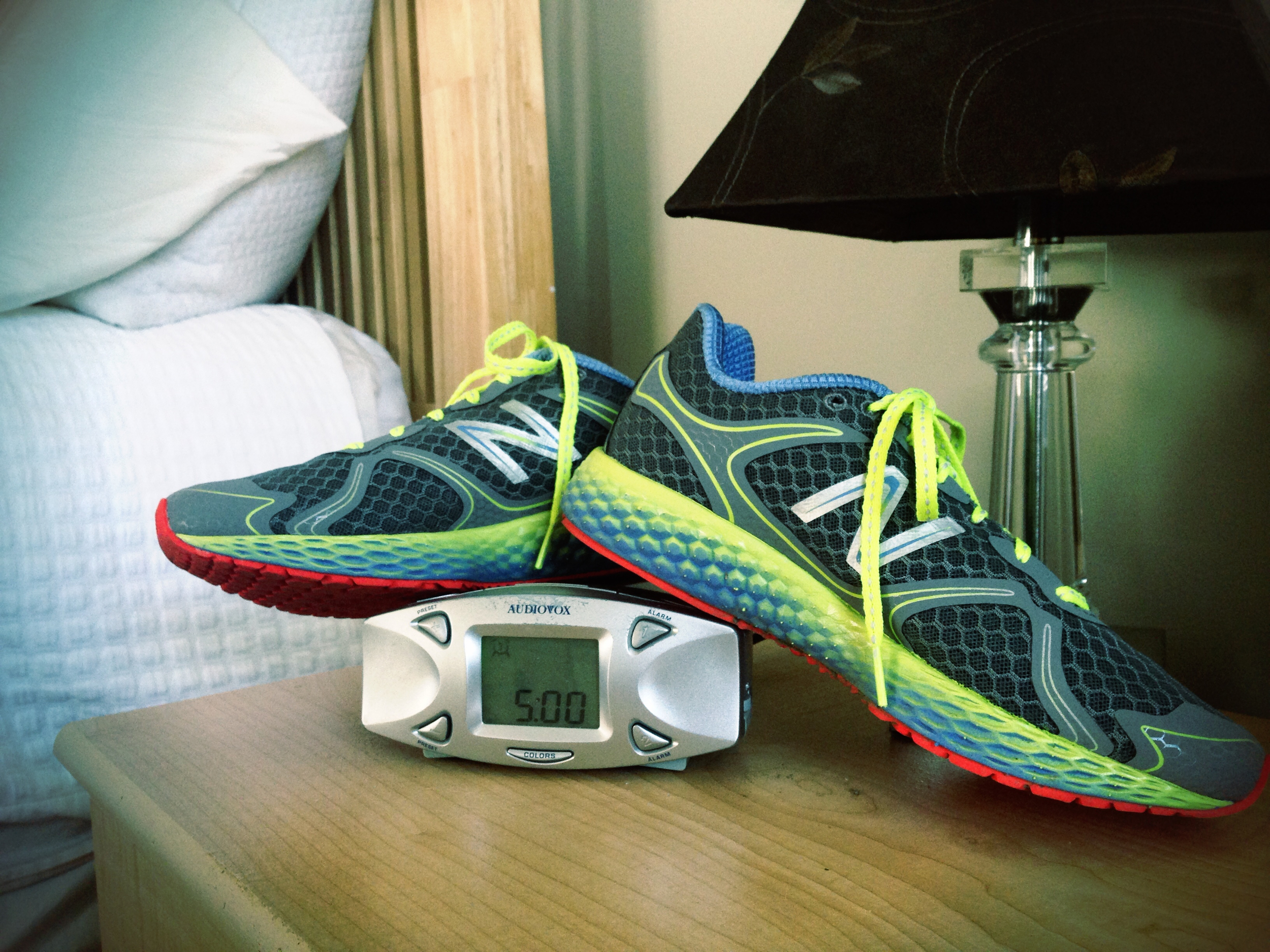How to Improve Your Sleep to Improve Your Running
/ Today’s workout: 6.6 miles easy (8:00 avg pace)
I try really hard to get to bed early. It’s a must when that alarm goes off at 4-something and I’ve got to get up and go run. Some nights my young kids are more needy than others and my husband and I haul our tired bodies out of bed multiple times to attend to them (like last night). I get increasingly cranky after too many of these nights of broken sleep and I know my training suffers.
Today’s workout: 6.6 miles easy (8:00 avg pace)
I try really hard to get to bed early. It’s a must when that alarm goes off at 4-something and I’ve got to get up and go run. Some nights my young kids are more needy than others and my husband and I haul our tired bodies out of bed multiple times to attend to them (like last night). I get increasingly cranky after too many of these nights of broken sleep and I know my training suffers.
You may not have small children. Instead, you may work nights or stay up late for other reasons. Or perhaps you suffer from insomnia or care for others in your home who are awake at all hours. Whatever the reason, many of us as runners are not getting the amount of sleep we need.
The Importance of Sleep:
Sleep is a critical component of proper recovery for runners. It’s so important that elite runners such as Ryan Hall regularly schedule naps during the day to ensure they recharge before heading out for an afternoon run. (Ryan refers to them as his “business meetings”)
During sleep, we go through several sleep cycles. In the 3rd and 4th cycle the HGH (Human Growth Hormone) is released from the pituitary gland and sends the signal to our body to heal itself. HGH in its natural form helps to repair muscles and serves as a catalyst to help the body utilize fat for fuel. Without the proper level of HGH in the blood, recovery is impaired and we don’t bounce back from workouts as quickly - so it takes us longer to build our fitness.
Sleep Your Way to a PR?
One of my favorite studies on sleep is the one conducted on the Stanford University basketball team. The study tracked the players from the team for a period of several months where they added an average of two hours of sleep a night. The results were pretty amazing. With no extra training, the players increased their speed by 5% and the accuracy of their free throws by 9%! I’m sure it’s not exactly the same, but can you imagine being able to improve your marathon time by 5% just by getting extra sleep? For a 3:30 marathoner, that would mean a 10+ minute PR! Sign me up.
How Much Do You Need?
Sleep experts recommend 7-9 hours of sleep for most people, and 8-10 for most athletes. In reality, this number can vary from runner to runner as some folks seem to perform well on less, and others need even more. To discover your own personal sleep needs you’d ideally go to sleep at the same time each night and wake up without an alarm for a week or two and compute the average hours of sleep per night from those results. But since most of us have jobs and/or families and aren’t able to perform this experiment, we can take some cues from our body and try to get as much sleep as we can in order to feel rested.
Quantity vs. Quality:
For those of that that are unable to get the full 8-10 hours recommended, there is some good news: Research has shown that the quality of sleep can be more important than the quantity of sleep. If you toss and turn all night you may never get into those 3rd and 4th stages of sleep where HGH is released and your body gets what it needs to repair and recharge.
While we may not be able to do anything about the kids waking us up several times a night, let’s look at what we CAN control:
5 Ways To Increase Your Quality of Sleep
- Set a bedtime – Figure out what time you need to get up in the morning for work or your run and then work backwards from there. If I’m getting up at 5am, I need to aim to be in bed at 9pm to get 8 hours of sleep. While this may not always be possible, it gives me a time to shoot for and an extra kick in the pants when it’s 8:30pm and I’m dragging my feet on doing the dishes.
- Darken the room – Close all of your blinds and remove (or cover) all electronic devices. The tiny light on your alarm clock can even be enough to disrupt your sleep cycle.
- Decrease/eliminate screen time before bed – I struggle with this one. But studies have shown that the bright light from our tablets, phones and laptops can disrupt the normal nighttime release of melatonin (a key hormone that tells our body it is time for bed) and delay sleep.
- Utilize a “worry” list – If you find it tough to go to sleep with a million thoughts racing through your head, you might benefit from using a “worry” list. Take a few minutes before bed and do a brain dump – record any worries or items “to do” on a pad of paper before you go to sleep. Getting the thoughts out of your head and recorded on paper may help your brain to settle down and let your mind and body rest peacefully through the night.
- Create a calming bedtime routine – Try to perform the same series of steps each night before bed – i.e. my routine is to wash my face, brush and floss, spend 10 minutes foam rolling, then read a chapter from my current book. Creating a routine that you perform each night will help signal to your body that it’s time to sleep – allowing you to fall asleep faster and sleep more soundly.
I know it’s easier said than done, but getting a good night’s sleep goes a long way into helping us consistently train hard and perform at our best. If you can maximize the quantity and quality of sleep you can get, you’ll be giving yourself the best shot at fully absorbing all the benefits of all that hard work. And those extra zzzzz’s may just be the difference between a good race and a GREAT one.








